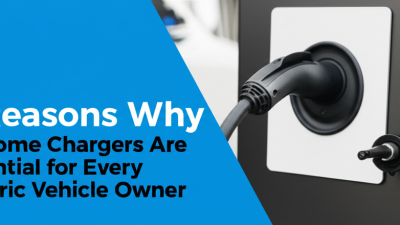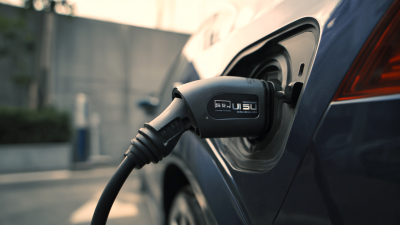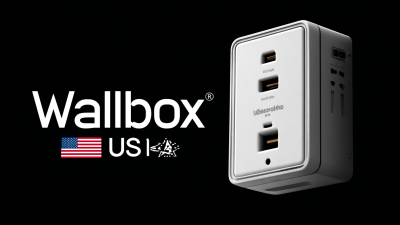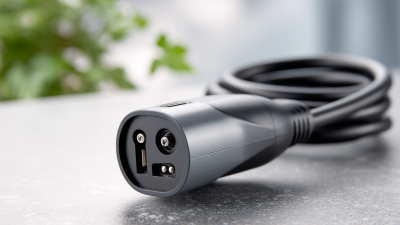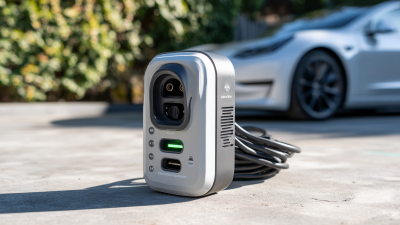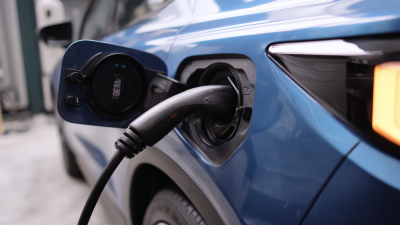As the electric vehicle (EV) market continues to expand, understanding the intricacies of EV charging solutions becomes increasingly essential for vehicle owners. According to a recent report by the International Energy Agency (IEA), electric car sales are projected to reach 145 million globally by 2030, significantly driving demand for efficient charging infrastructure. A critical component of this infrastructure is the EV charger adapter, which facilitates the connection between your vehicle and various charging stations.

Choosing the right EV charger adapter is not just a matter of convenience, but also a key factor in maximizing energy efficiency and reducing charging time. With various types of adapters available, each designed for different vehicle models and charging capabilities, selecting the appropriate adapter can dramatically influence overall performance and user experience. This guide aims to simplify the decision-making process, providing essential insights to help you choose the perfect EV charger adapter for your needs.
When considering the optimal EV charger for your vehicle, understanding the different types of EV charger adapters and their compatibility is crucial. The recent market analysis indicates that the electric vehicle charger market is experiencing significant growth, driven by increasing adoption rates. As of 2023, battery electric vehicles (BEVs) are dominating the market, constituting around 70% of total EV sales. This rise necessitates a clear comprehension of the various charging standards available, such as Type 1, Type 2, Type 6, and Type 7 connectors, each offering distinct advantages in terms of charging speed and compatibility.
The ongoing expansion of charging networks is further emphasizing the importance of choosing the right adapter. For instance, the adoption of different connectors by major players in the industry, such as the recent acceptance of the Type 6 connector, highlights the need for EV owners to be well-informed about charger specifications. Studies show that having access to a wider variety of charging options can enhance user experience, as various EVs may not support every type of fast-charging station. Therefore, understanding these compatibility nuances is vital for maximizing charging efficiency and ensuring seamless integration with existing charging infrastructure.

When choosing the right EV charger adapter for your vehicle, it's vital to focus on key features that enhance efficiency and compatibility. First, consider the charging speed. Look for adapters that support higher wattage to ensure quicker charging times, especially for long trips. Additionally, ensure that the adapter is compatible with your vehicle’s connector type, whether it's Type 1 or Type 2, as this will affect both charging efficiency and safety.
Another crucial aspect is the safety features integrated into the adapter. Opt for models that include protection against overcharging, overheating, and short circuits, which can help to safeguard your vehicle’s battery in the long run. Finally, consider portability. A lightweight, compact design can be a significant advantage when traveling, making it easier to transport and use in various locations. These features will not only maximize your EV's performance but also enhance your overall driving experience.
When selecting an EV charger adapter, understanding how charging speed impacts overall efficiency is crucial. Faster charging times not only enhance the user experience but also contribute to the longevity of the vehicle’s battery life. According to recent advancements in battery technology, ultra-fast charging solutions can enable EVs to gain substantial range in mere minutes, significantly reducing downtime. For instance, certain innovations allow for a vehicle to cover 520 kilometers within just five minutes of charging, underscoring the importance of choosing compatible charger adapters that support these high speeds.
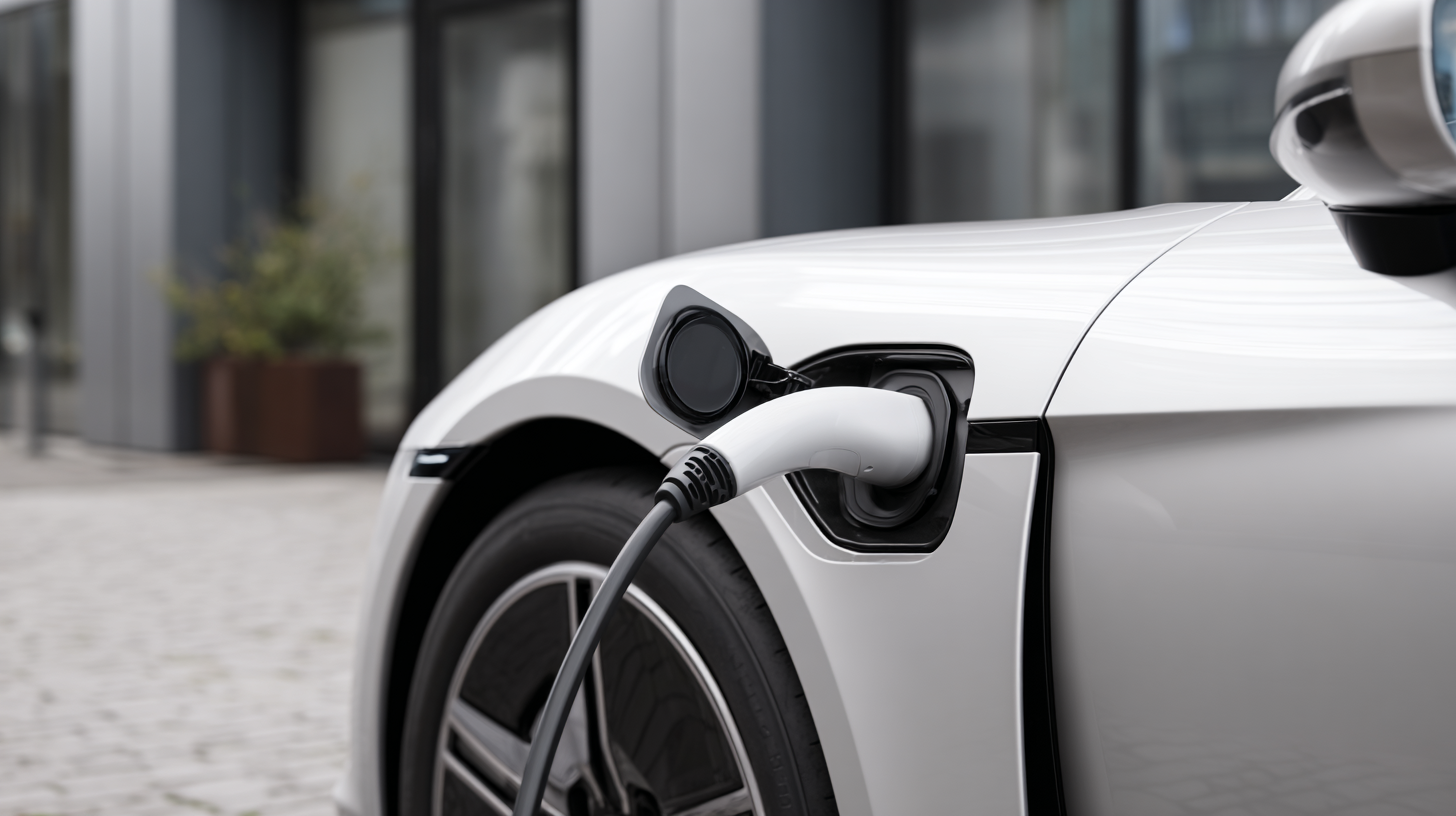
Moreover, the design and type of charging cable also play a critical role in vehicle performance. Technical reports indicate that the right cable can influence efficiency, weight, and overall powertrain performance. Selecting cables that minimize resistance and maximize current delivery can lead to both improved charging efficiency and better long-term battery health. As the EV market continues to evolve, staying informed about these factors will empower consumers to make smarter, more efficient choices regarding their EV charging solutions.
When selecting an EV charger adapter, choosing from the top recommended brands and models is essential for enhancing your electric vehicle's efficiency. Leading manufacturers like ChargePoint and Blink have established a reputation for reliability and performance. According to a 2022 report by the International Energy Agency (IEA), ChargePoint holds a significant market share in the EV charging infrastructure sector, boasting over 114,000 charging stations across North America alone. Their versatile EV adapters cater to various vehicle models, ensuring compatibility and faster charging times.
Another noteworthy brand is Siemens, known for its advanced engineering and cutting-edge technology. Their VersiCharge model has been highlighted in industry reviews for its user-friendly features and robust performance, making it an ideal choice for home charging solutions. A study published by the U.S. Department of Energy indicates that effective charging systems can significantly reduce charging times by approximately 30%, underscoring the importance of selecting quality adapters. Ultimately, investing in reputable brands ensures not only optimal efficiency but also long-term durability, enabling drivers to maximize their EV experience.
| Charger Adapter Type | Power Output (kW) | Charging Speed (Miles/hour) | Compatible EV Models | Price Range ($) |
|---|---|---|---|---|
| Level 1 Charger | 1.4 | 4-5 | Most EV models | 300 - 600 |
| Level 2 Charger | 7.2 | 20-25 | Most EV models | 400 - 800 |
| DC Fast Charger | 50 | 200 | Specific models only | 10,000 - 40,000 |
| Level 3 Charger (Ultra Fast) | 350 | 500 | Limited models | 30,000 - 70,000 |
Maintaining your EV charger adapter is crucial for ensuring optimal performance and longevity of both the charger and your vehicle. Regular inspection of the charging connector for signs of wear or damage, such as frayed cables or corrosion, can prevent potential issues that may affect charging efficiency. Furthermore, keeping the charging port clean and free from debris can enhance connectivity, leading to more reliable charging sessions. A report suggests that proper maintenance can increase the lifespan of your charger by up to 30%, underscoring the importance of routine care in avoiding costly replacements.
Incorporating best practices into your charging routine can significantly improve charging speed and reduce energy waste. For instance, utilizing fast chargers, which can deliver power at rates approximately 25 to 80 times faster than onboard chargers, is essential for time-sensitive charging needs. Additionally, the integration of advanced cooling systems in newer charging technologies helps maintain optimal temperatures during the charging process, thus enhancing overall performance. According to recent studies, maintaining the temperature of charging cables and systems below a specified threshold can improve energy efficiency by up to 15%, further promoting sustainable habits within the EV ecosystem.
